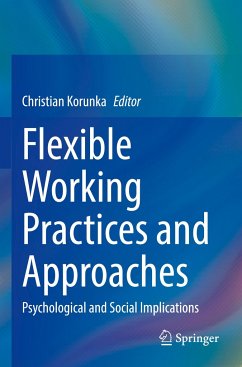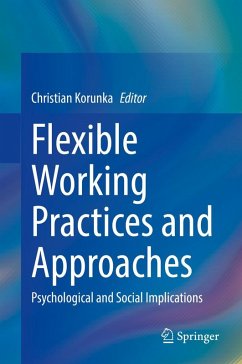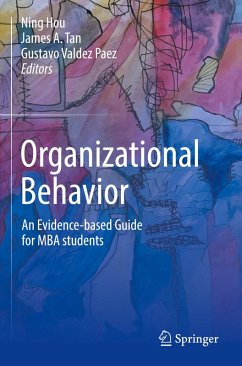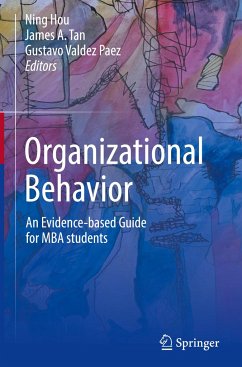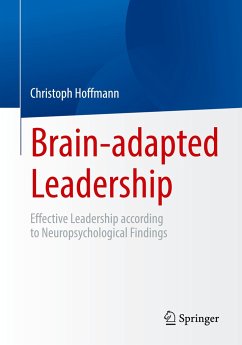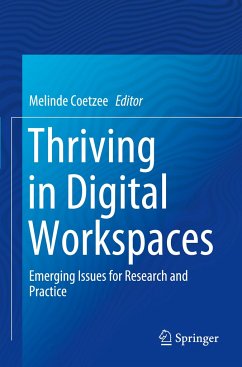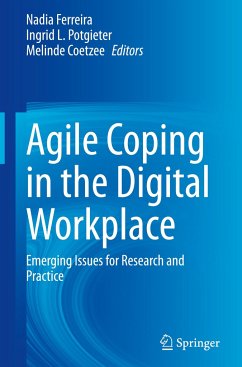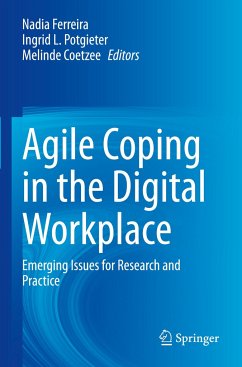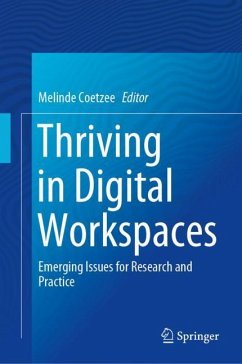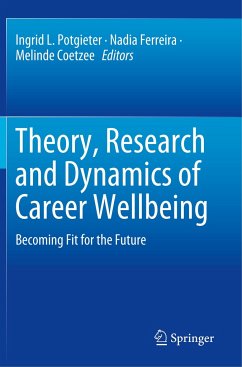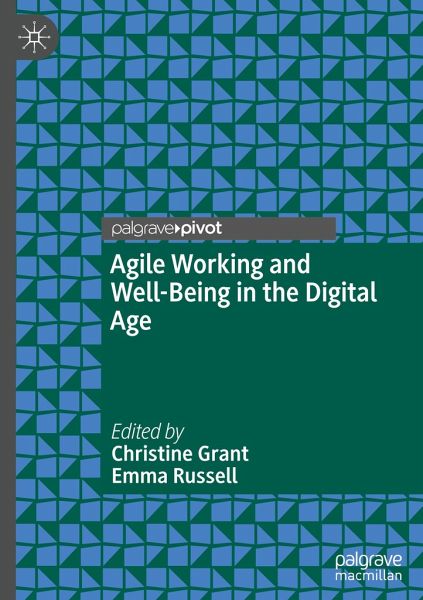
Agile Working and Well-Being in the Digital Age

PAYBACK Punkte
25 °P sammeln!
Within the digital era, agile working is imperative for organisations and workers to meet the needs of customers, service-users and ever-changing markets. This needs to be achieved whilst meeting goals of effectiveness and well-being. In this book, state-of-the-art theory is used to understand how to optimise agile working by addressing key issues around personality, team-working and management. The authors define the concept of agile working and unpack often-misunderstood terms associated with this, such as remote working and telework. The book explores the well-being consequences of agile wo...
Within the digital era, agile working is imperative for organisations and workers to meet the needs of customers, service-users and ever-changing markets. This needs to be achieved whilst meeting goals of effectiveness and well-being. In this book, state-of-the-art theory is used to understand how to optimise agile working by addressing key issues around personality, team-working and management. The authors define the concept of agile working and unpack often-misunderstood terms associated with this, such as remote working and telework. The book explores the well-being consequences of agile work including sedentary behaviours, digital distraction, and digital resistance before offering insights for the future. Examining current practice in the context of established and emerging theory, the book paves the way towards further advances in the field and supports organisations seeking to make agile working work for them.
Agile Working and Well-being in the Digital Age provides a valuable new resource for practitioners and scholars in the fields of occupational and organizational psychology, human resource management, organisational development, mental health and well-being.
Agile Working and Well-being in the Digital Age provides a valuable new resource for practitioners and scholars in the fields of occupational and organizational psychology, human resource management, organisational development, mental health and well-being.



